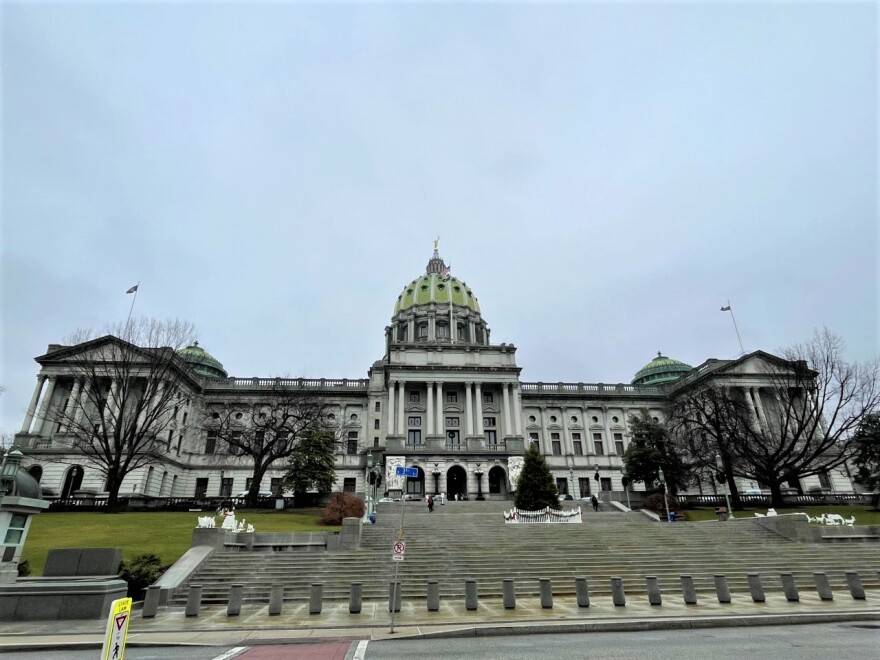HARRISBURG, Pa. (AP) — Pennsylvania voters almost certainly will not see a package of proposed constitutional amendments on the statewide ballot in May’s primary election after a deadline set by Democratic Gov. Josh Shapiro’s administration came and went Friday for lawmakers to pass the measures.
The amendments include a long-awaited bipartisan effort to give victims of child sexual abuse a new chance to sue perpetrators, plus two Republican-backed measures to expand voter-identification requirements and empower lawmakers to cancel regulations without facing a governor’s veto.
- A package of constitutional amendments stalled in the Pa. House
- Friday marked the deadline to pass the measures
- Both chambers are, for now, adjourned until Feb. 27
The Republican-controlled state Senate gave its approval earlier this month, although GOP lawmakers isolated Democrats by combining the measures into one bill.
The state House had not taken action on it amid a political paralysis over which party is in control.
Both chambers are, for now, adjourned until Feb. 27.
The deadline in the constitution to pass and advertise the proposed amendments in newspapers is Feb. 16, three months before the primary election. Shapiro’s Department of State said the Legislature needed to pass it no later than Friday to provide time for the agency to set up advertising in newspapers around the state.
It will otherwise be “exceedingly difficult” for the department to meet the Feb. 16 advertising deadline, the agency said Friday.
The next opportunity for the amendments to appear on a statewide ballot is in the November general election, but the proposals must first pass both chambers.
For sexual assault survivors and advocates who have been waiting for the lawsuit window legislation to pass since the earliest introduction years ago, it’s a struggle to watch, said Mike McDonnell, a spokesman for Survivors Network of those Abused by Priests. He called it “disgusting” to package the measure with the others.
“The Legislature is inflicting more pain on victims rather than trying to compromise and work towards a solution that protects other children, allows predators to become exposed, as well as any institution that may have covered up for them,” he said. “Some things in my view are more important than any political shuffling and this is certainly one of them.”
House Speaker Mark Rozzi, D-Berks, canceled session days in January after lawmakers failed to reach a deal on his legislative priority, the lawsuit window for victims of child sexual abuse.
The Senate passed the package on a nearly party-line vote on Jan. 11, sending it to the House for further action. Republican leadership in the House said it would be easy to pass, and blamed Democrats for keeping them out of session until after a Feb. 7 special election will determine who has the majority in the chamber. Democrats narrowly took the House in November, but three Democratic vacancies created 101-99 Republican majority.
Senate Republican leader Joe Pittman said the Senate is “adamant the House needs to pass” the bill as presented.
“It is unfortunate the House has yet to organize their chamber and take action to give voters a voice on these significant matters,” he said.
But Democrats are pushing for the lawsuit window to be considered on its own.
Nicole Reigelman, a spokeswoman for the House Democratic leadership, called Republicans in both chambers “disingenuous” and “more concerned with scoring political points early in the legislative session by leveraging survivors of childhood sexual abuse for their own partisan gain.”
“It is shameful to make that commitment contingent on partisan policy agendas because survivors have waited too long for justice,” she said.
The lawsuit window measure originally passed both chambers in two consecutive legislative sessions, but a state misstep meant it couldn't go before voters, so the process had to start over.
__
Brooke Schultz is a corps member for the Associated Press/Report for America Statehouse News Initiative. Report for America is a nonprofit national service program that places journalists in local newsrooms to report on undercovered issues.
__
Mark Scolforo contributed reporting.

